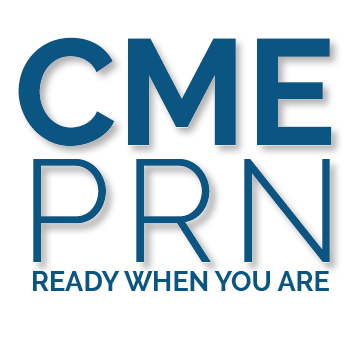
Total Credits: 1 including 1 AMA PRA Category 1 Credit(s)™, 1 AOA Category 1-A Credit(s)
In this presentation, Dr. Beaman will review best practices for effectively prescribing opioids and other controlled substances to treat chronic pain. The presenter will review chronic pain, the risks and benefits of opioid use, the criteria used to make decisions on opioid use in patients, and strategies to use to minimize opioid misuse.
Objectives:
1. Learners will understand the concept of prescribing controlled substances.
2. Learners will understand the appropriate use of controlled substances and implement strategies to minimize the risk of misuse, diversion, and overdose of opioids and other controlled substances.
3. Learners will understand the proper prescribing of controlled substances.
4. Learners will become familiar with and implement the CDC guidelines when prescribing opioids for treating and managing chronic pain.
5. Learners will establish clear criteria for initiating, continuing, and discontinuing opioid and controlled substance therapy for chronic pain.
Accreditation Statements:
The Missouri Association of Osteopathic Physicians and Surgeons (MAOPS) is accredited by the American Osteopathic Association to provide osteopathic continuing medical education for physicians.
MAOPS designates this program for a maximum of 1 AOA Category 1-A CME credit(s) and will report CME and specialty credits commensurate with the extent of the physician’s participation.
The Missouri Association of Osteopathic Physicians and Surgeons (MAOPS) is accredited by the Accreditation Council for Continuing Medical Education (ACCME) to provide continuing medical education for physicians.
MAOPS designates this enduring activity for a maximum of 1 AMA PRA Category 1 Credit(s)ä. Physicians should claim only the credit commensurate with the extent of their participation in the activity.
Planning Disclosure: The Missouri Association of Osteopathic Physicians and Surgeons Education Planning Committee has no relevant financial relationships with any organization producing, marketing, reselling, or distributing healthcare goods or services consumed by, or used on, patients relative to the content of this presentation.
Grievance Policy: All grievances should be in writing and should specify the nature of the grievance. Initially, all grievances should be directed to the MAOPS Executive Director, who will then forward said grievance to the Education & Convention Committee. All grievances will receive an initial response in writing within 30 days of receipt. If the participant does not receive a satisfactory response, then they can submit a complaint in writing to the Bureau of Osteopathic Education of the AOA at 142 East Ontario Street, Chicago, IL 60611.
| Handout - Jason Beaman DO - Proper Prescribing of Controlled Substances (3.4 MB) | 83 Pages | Available after Purchase |

Dr. Beaman completed medical school at Oklahoma State University Center for Health Sciences in Tulsa, Oklahoma. He then completed two simultaneous residencies in Psychiatry and Family Medicine at the University of Oklahoma-Tulsa. After residency, Dr. Beaman completed a fellowship in Forensic Psychiatry at Case Western Reserve University in Cleveland, Ohio. After his fellowship, he obtained a Master of Science in Pharmacy from the University of Florida in Gainesville, Florida, and a Master's in Public Health from Johns Hopkins University in Baltimore, Maryland. Dr. Beaman has board certification in Addiction Medicine from the American Board of Preventative Medicine, in Psychiatry by the American Board of Psychiatry and Neurology, and in Forensic Psychiatry by the American Board of Psychiatry.
Dr. Beaman served as the Chair of Psychiatry and Behavioral Sciences at Oklahoma State University for eight years before moving up to chair the School of Forensic Sciences. He is also the forensic psychiatry fellowship director. While he was chair of psychiatry, Dr. Beaman created the Project Blue Streets Task Force, which established a city-wide protocol for the care of mental health patients and testified against Johnson & Johnson in the State opioid litigation. He is active in research in the areas of motives of criminal behavior, the intersection of methamphetamine and violence, and the epidemiology of Adverse Childhood Experiences.
Dr. Beamon discloses that he has no relevant financial relationships with any organization producing, marketing, reselling, or distributing healthcare goods or services consumed by or used on patients relative to the content of this presentation.
| 5 |
|
| 4 |
|
| 3 |
|
| 2 |
|
| 1 |
|